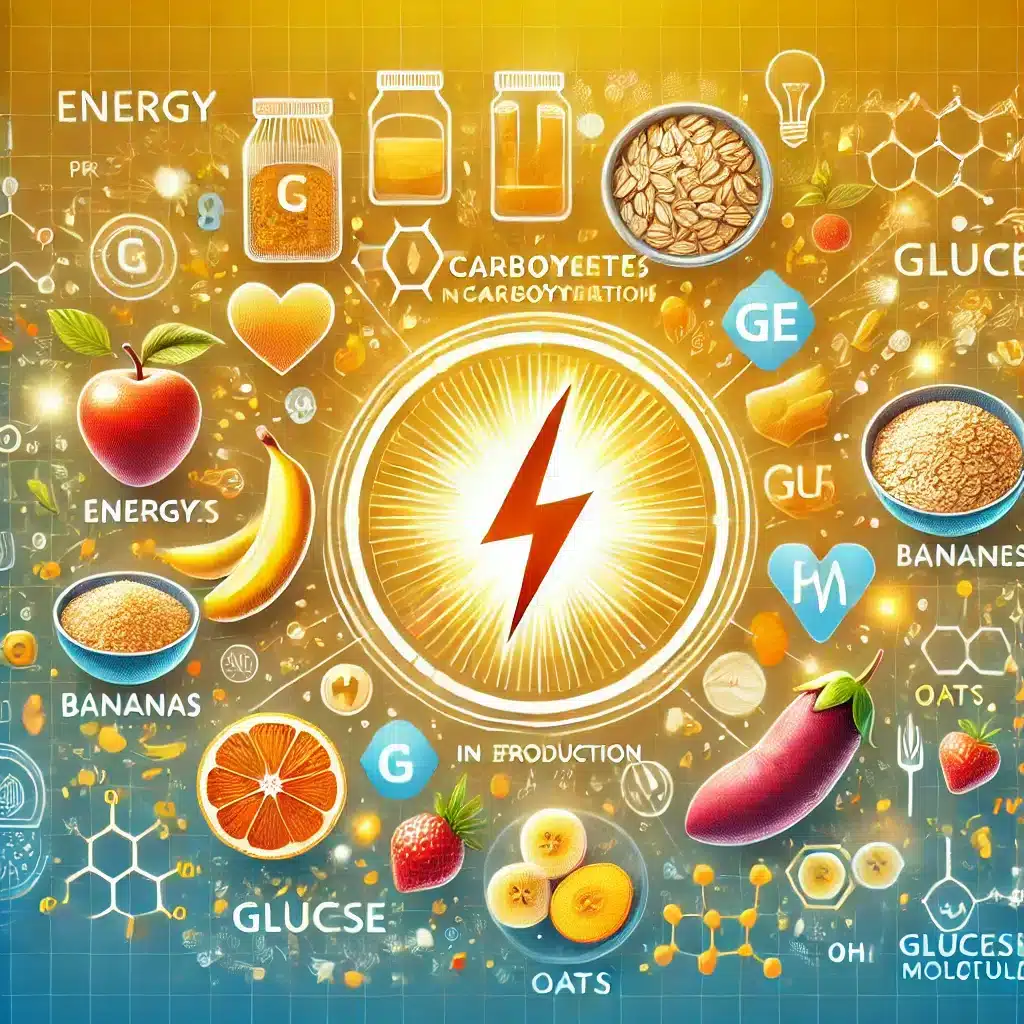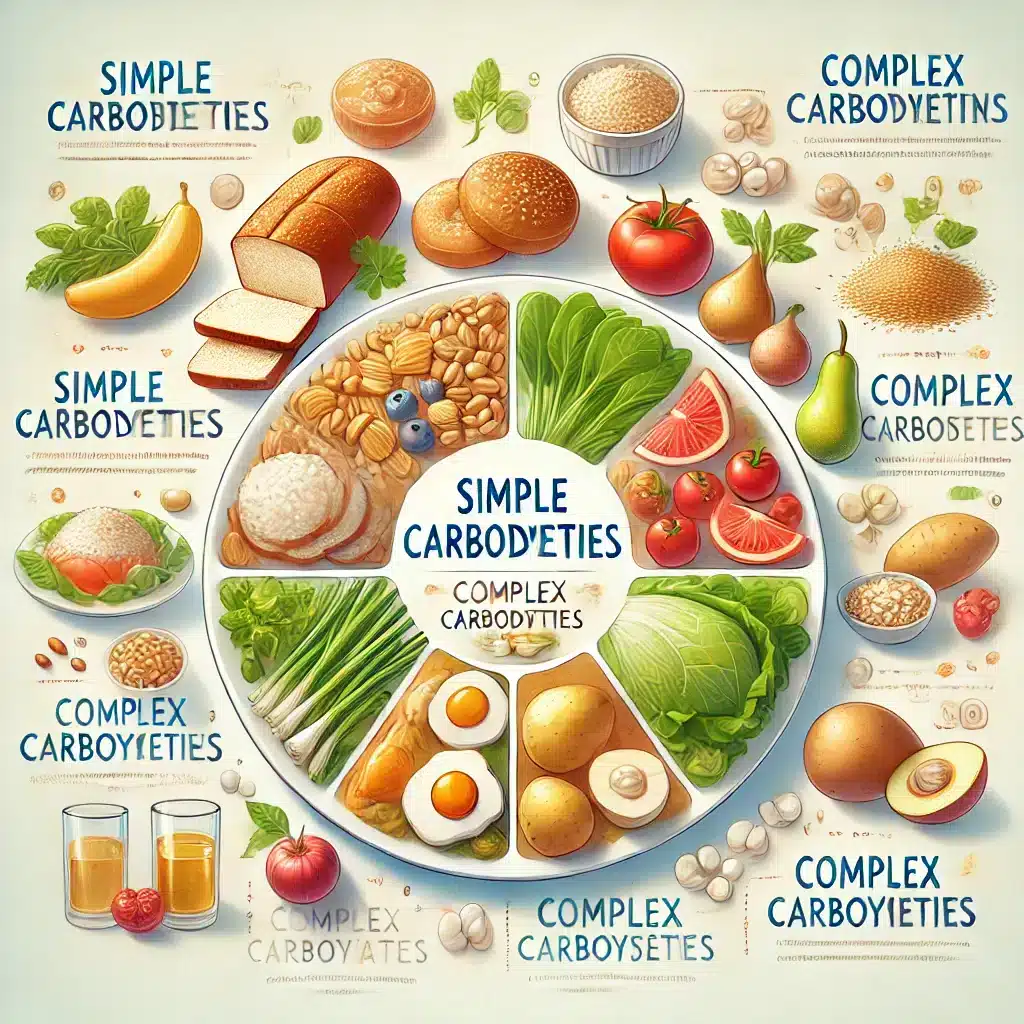Everything about carbohydrates: A comprehensive definition, types, benefits, and drawbacks
What is carbohydrate?
Carbohydrates are one of the three main macronutrient groups that the body needs to provide energy. These molecules are composed of carbon, hydrogen, and oxygen atoms and are primarily found in plant-based foods. When you consume carbohydrates, the body converts them into glucose (sugar) and uses it for energy or stores it as glycogen in muscles and the liver. This process is essential for the body’s daily functions, including physical and mental activities.
Carbohydrates play an important role in the diet as they can provide the body with immediate energy. However, the type of carbohydrate consumed has a significant impact on overall health. Therefore, understanding the different types and how to consume them is particularly important.
Types of carbohydrates
Carbohydrates are divided into two main categories:
1. Simple carbohydrates
This type includes simple sugars such as glucose, fructose, and lactose. These molecules have a simple structure and are quickly absorbed, providing immediate energy. Therefore, excessive consumption of them can lead to a sudden spike in blood sugar levels. The main sources include:
- Fruits (such as bananas, apples, oranges)
- Honey
- Milk and dairy products
- Processed sugar and sweeteners
The consumption of simple carbohydrates should be balanced, as excessive intake can lead to health problems such as obesity and diabetes.
2. Complex carbohydrates
This type includes longer chains of sugar molecules that take more time to digest and absorb, providing a more sustained energy release. These carbohydrates are also a great source of fiber, which is essential for digestive health. The main sources include:
- Whole grains (such as oats, brown rice, whole wheat)
- Legumes (such as lentils, chickpeas)
- Starchy vegetables (such as potatoes, corn)
Complex carbohydrates, due to their lower glycemic index, have a smaller impact on blood sugar levels and can be a good option for weight management.
The role of fiber in carbohydrates
Fiber, which is part of complex carbohydrates, plays an important role in health. Soluble fibers can help lower cholesterol levels, while insoluble fibers aid in improving bowel movements and preventing constipation. Fiber-rich sources include vegetables, fruits, whole grains, and legumes.
Benefits of carbohydrates
- Energy supply: Carbohydrates are the primary fuel source for the body and brain. Without them, the body has to rely on fat and protein for energy, which can be detrimental to overall body function.
- Support for physical performance: Consuming complex carbohydrates helps increase endurance and athletic performance, and aids in replenishing glycogen stores after exercise.
- Supporting brain function: Glucose derived from carbohydrates is the primary energy source for the brain, and a deficiency can lead to decreased concentration and feelings of fatigue.
- Maintaining gut health: The fiber found in complex carbohydrates helps improve digestion and the health of the digestive system, reducing the risk of chronic diseases such as colon cancer.
- Regulating blood sugar: Carbohydrates with a low glycemic index help maintain balanced blood sugar levels and prevent sudden spikes and drops.
Drawbacks of excessive carbohydrate consumption
- Weight gain: Excessive consumption of simple carbohydrates can lead to an increase in body fat, as excess calories are stored as fat.
- Blood sugar fluctuations: High glycemic index carbohydrates can cause rapid spikes and drops in blood sugar, leading to feelings of fatigue and hunger.
- Heart problems: Excessive consumption of simple sugars can lead to increased triglyceride levels and a higher risk of heart disease.
- Type 2 diabetes: Long-term consumption of simple carbohydrates can reduce insulin sensitivity and increase the risk of developing diabetes.
- Negative impact on teeth: Simple sugars can increase the risk of tooth decay.
Healthy and unhealthy carbohydrates
Healthy carbohydrates:
- Whole grains
- Legumes
- Fruits
- Vegetables
- Nuts and seeds
Unhealthy carbohydrates:
- White bread
- Sweets and cakes
- Sweetened beverages
- Processed foods (such as chips and crackers)
Guide to carbohydrate consumption
- Opt for more complex and natural carbohydrates.
- Reduce the consumption of added sugars and sweeteners.
- Consume enough fiber.
- Balance your meals by dividing them between carbohydrates, proteins, and fats.
- Use the glycemic index of foods to make better choices.
Carbohydrate sources and their amounts table
| Food source | Type of carbohydrate | Carbohydrate content per 100 grams (grams) |
|---|---|---|
| Brown rice | Complex | 23 grams |
| Potato | Complex | 17 grams |
| Oats | Complex | 66 grams |
| Banana | Simple | 23 grams |
| Lentils | Complex | 20 grams |
| White bread | Simple | 49 grams |
| Honey | Simple | 82 grams |
| Quinoa | Complex | 21 grams |
| Apple | Simple | 13 grams |
| Red beans | Complex | 22 grams |
The impact of carbohydrates on athletic performance
Carbohydrates are recognized as the primary energy source for athletes. Before exercise, consuming complex carbohydrates can provide sustained energy. After exercise, consuming simple carbohydrates is essential for replenishing glycogen stores. Combining carbohydrates with protein in post-workout meals can aid in muscle recovery and improve performance.
Conclusion
Carbohydrates are a vital part of a healthy diet and should be chosen wisely. By focusing on natural, fiber-rich sources and avoiding processed carbohydrates, you can reap the benefits while preventing potential drawbacks. Remember that balance is the key to a successful diet. Adequate and balanced carbohydrate consumption can play an important role in maintaining overall health and achieving fitness goals.

